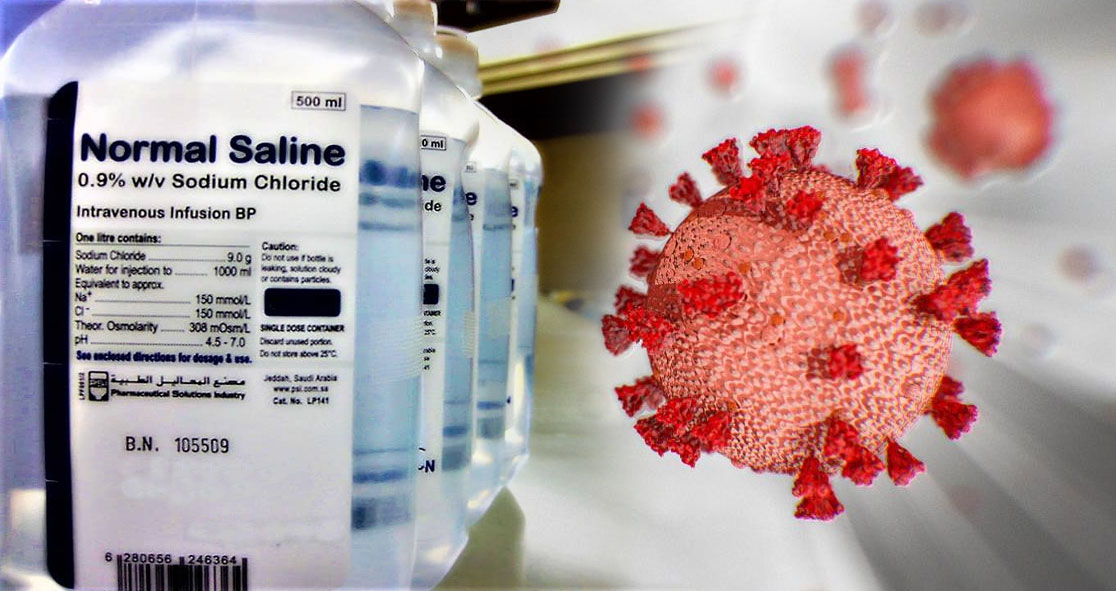A study by the researchers of the University of São Paulo, Brazil, has shown that a hypertonic saline solution inhibits replication of the coronavirus, according to Medical Xpress.
The study, published in ACS Pharmacology & Translational Science, was performed in a lab using human epithelial lung cells infected with the SARS-CoV-2, which causes COVID-19 infection.
If this strategy proves effective in clinical trials, new prophylactic interventions can be developed to prevent and even treat the COVID-19 infection.
Study author Prof. Cristiane Guzzo of the University of São Paulo said, “Given the gravity of the pandemic, we believe it would be important to extend this line of research by conducting clinical trials designed to verify the efficacy of using a spray with hypertonic sodium chloride [NaCl] saline as a form of prophylaxis, helping to stop the virus from spreading within the infected organism and reducing the likelihood of more severe inflammation.”
The evidence does suggest that using saline solution inhibits viral replication, but it does not offer full protection against infection.
Prof. Guzzo said, “It’s very simple and cheap. It’s already used prophylactically against other respiratory diseases, and it could minimize the severity of COVID-19 by reducing viral load. It could be added to safety protocols without replacing the use of face coverings, social distancing and vaccination.”
The researchers found that a 1.5% NaCl (sodium chloride) solution completely inhibited viral replication in Vero cells. And in human epithelial lung cells, a 1.1% NaCl solution was enough to achieve 88% inhibition.
Hypertonic saline solution has already been used as a prophylactic to manage cases of respiratory disorders, including influenza, bronchiolitis, rhinitis, sinusitis, and others.
A nasal spray containing NaCl is sufficient for the upper airways, but you need a nebulizer for the solution to reach the lungs.
Another author Prof. Henning Ulrich said, “Our explanation of this intracellular response to the hypertonic solution was basic science but the findings of the study have evident applications in healthcare and clinical approaches to the management of various respiratory diseases.”
“What we observed with regard to SARS-CoV-2 is likely to apply to other viruses as well, since the mechanism concerned is part of the host cell’s response to infection,” he added.
Prof. Guzzo explained, “We discovered that NaCl doesn’t interfere with interaction between the SARS-CoV-2 spike protein and the ACE-2 receptor used by the virus to invade cells, but the saline does affect the post-infection viral cycle.”
“It’s not a single solution, and it would have to be used in the first few days after infection,” she added. “Reducing viral replication means reducing the severity of the disease and the inflammatory response.”
“COVID-19 is a complex disease, comprising the viral replication stage, which hypertonic saline could treat, and then systemic inflammation, which is far more extensive,” Prof. Guzzo noted. “This second stage can be intense and lead to a number of complications in different organs.”























